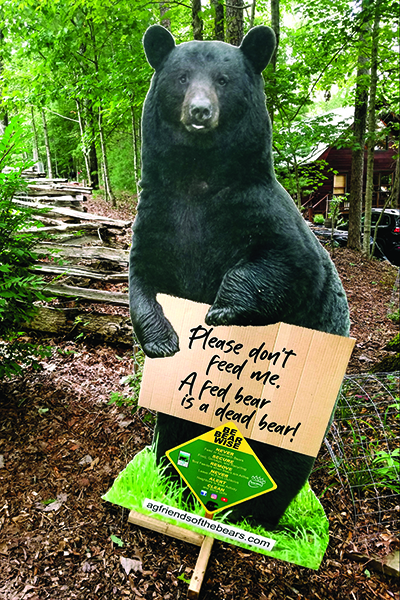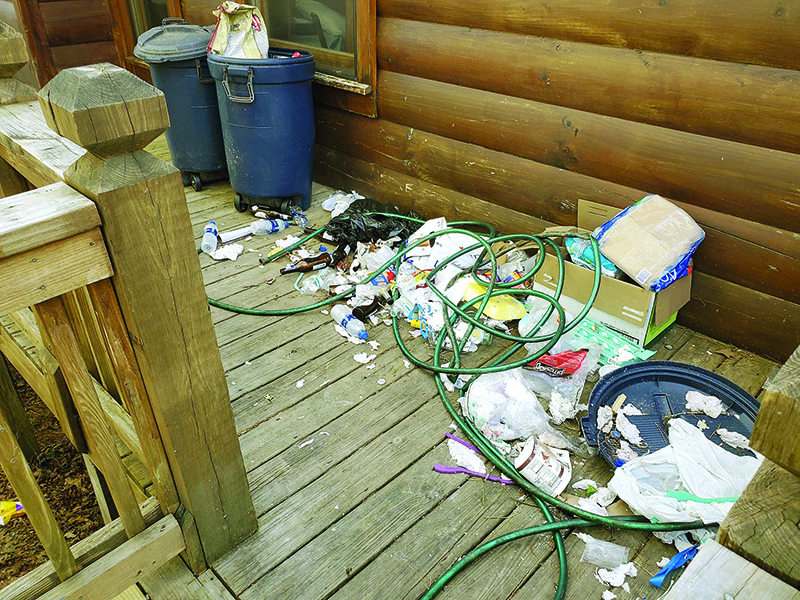Typically, children returning to school and Southeastern Conference football heralds the arrival of fall. We know the leaves have started turning and cooler weather is on its way. Everything else is not what it typically is.
The shorter days and cooler weather prompt black bears bodies to shift into hyperphagia, or excessive eating. They begin to store fat for winter. Black Bears are opportunist feeders. They will eat almost anything that comes in front of them. Sometimes, it gets them in trouble.

In the fall, the primary food they depend on are hard mast crops such as acorns, hickory nuts, walnuts and pecans. The acorn is the primary hard mast crop that the black bear currently depends on in Appalachia Georgia. Full-grown acorns will become evident by late summer. Hickory nuts and walnuts can only be eaten by adult bears because sub-adult bears do not have their adult teeth yet.
Oak trees begin acorn production at 20–50 years of age and the chance of an acorn becoming a full oak tree is 1:10,000. White oak trees can produce mature acorns annually within 3 months. Red oak acorns, however, take two growing seasons to mature. Inconsistent acorn production significantly impacts the black bear population from year to year.
A bad year of acorn production can have a devastating impact on the current and future black bear population. Last year’s production was a “high fair” year on a “poor, fair, good” scale. We are waiting on the state botanist and Georgia DNR is provide their professional opinions, but to the casual observer, it is not as good as last year. Successful pollination was spotty across north Georgia because of the excessive rain. We shall see.
Black bears are eating machines! A 250 lbs. male black bear must eat 3,000 calories a day to maintain weight, that is approximately 1.5 lbs. of acorns a day. On top of all these calories needed for daily living they must consume 20,000 calories/day during hyperphagia to gain the needed 3-5 lbs./day needed for hibernation. Bears in our area are entering Hyperphagia now!
Females require more calories to nurse her cubs. A female must meet a certain level of body fat to hibernate and to allow her blastocysts (embryos) to implant. If they cannot store enough fat, males and females alike will not hibernate and there will be no cubs in January.
It is more important now to secure attractants to reduce the possibility of having human-bear conflicts.
This comes in the form of:
﹣ garbage
﹣ birdseed
﹣ hummingbird feeders
﹣ pet food
﹣ livestock food
﹣ greasy BBQs, smokers and fish cookers
﹣ other wildlife foods accessed by black bears.
These attractants teach them to approach homes and people for more food. Bad human behavior begets bad bear behavior.
The Appalachia Georgia Friends of the Bears’ mission is to reduce human-bear conflict through proactive educational outreach programs, increasing public awareness about coexisting with black bears, the use of humane bear deterrents, and advocacy. We are a 501(c)(3) non-profit and tax-exempt organization. Visit us at https://agfriendsofthebears.com, Facebook and Instagram.
Lt. Col. (ret.) Gerald D. Hodge Jr. is founder of the “Appalachia Georgia Friends of the Bears,” whose mission is the reduction of bear-human conflict through proactive educational outreach programs, increasing public awareness about coexisting with black bears, the use of humane bear deterrents and advocacy. He can be reached at AGFriendsoftheBears@gmail.com.

